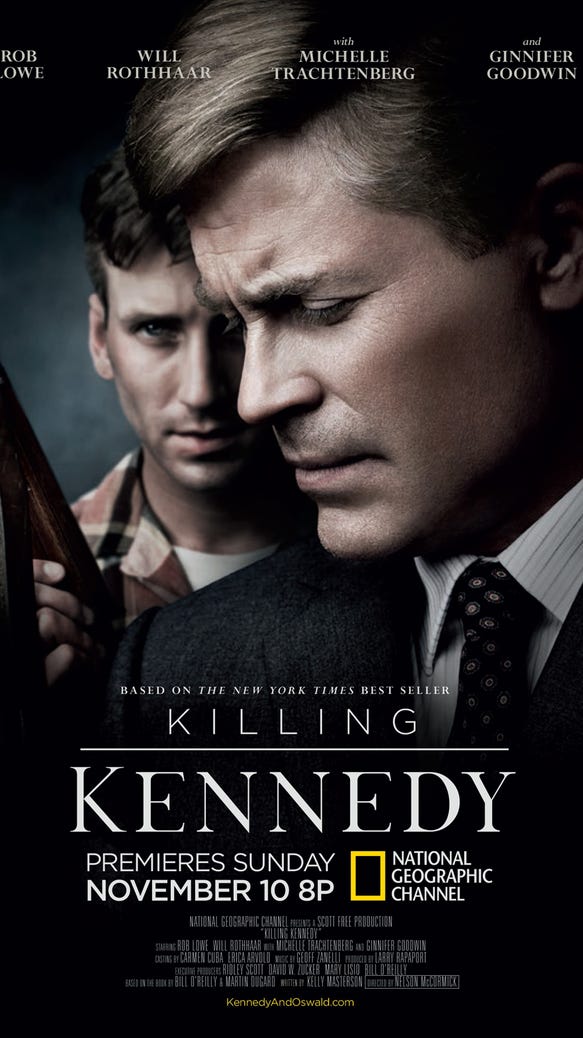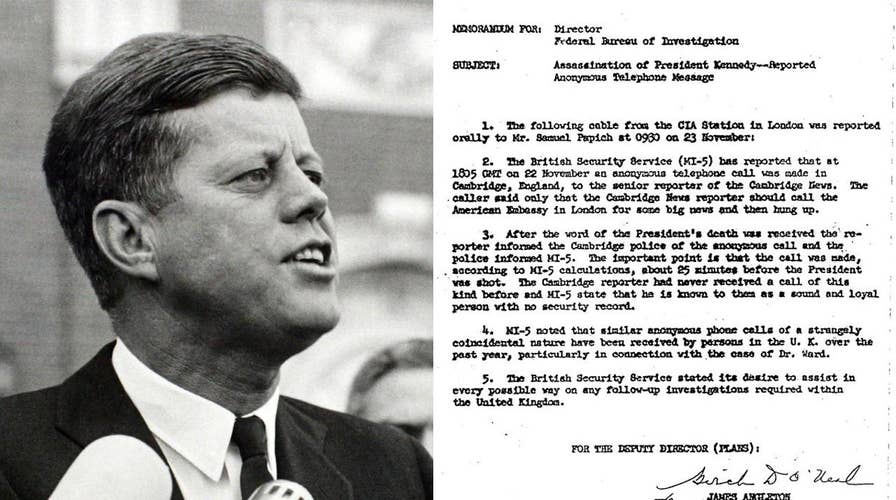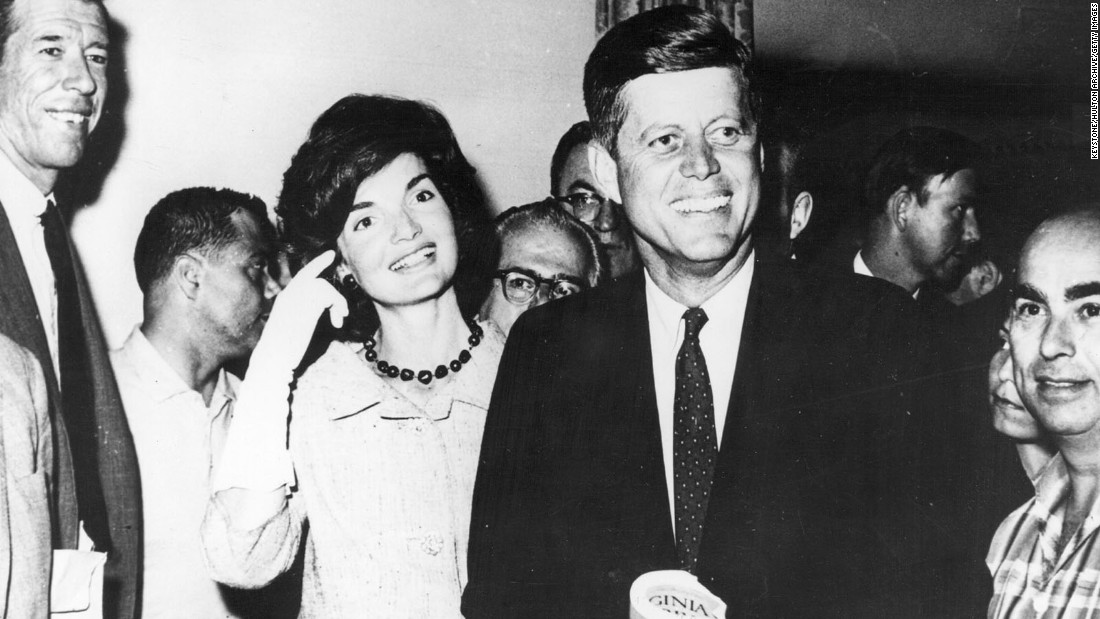The assassination of John F. Kennedy remains one of the most debated topics in American history, with many theories suggesting that the CIA played a pivotal role in his death. For decades, researchers, historians, and conspiracy theorists have explored the possibility of a CIA involvement in the assassination. The event itself occurred on November 22, 1963, when President Kennedy was fatally shot while riding in a motorcade in Dallas, Texas. This tragic incident has sparked countless investigations, official reports, and speculations about who was truly responsible.
While the official narrative points to Lee Harvey Oswald as the lone gunman, many alternative theories have emerged, pointing fingers at various powerful entities, including the Central Intelligence Agency (CIA). These theories are based on perceived inconsistencies in the evidence, classified documents, and the political climate of the time. Understanding these theories requires a deep dive into the historical context, the motivations behind them, and the evidence that supports or refutes them.
This article aims to explore the CIA's potential role in the assassination of President Kennedy, examining both the evidence and the lack thereof. We will delve into the origins of these conspiracy theories, analyze key historical documents, and provide a balanced perspective on this controversial topic. By the end of this article, readers will have a clearer understanding of the complexities surrounding this historical event.
Read also:Nicki Minaj Dob Exploring The Life And Legacy Of A Hiphop Icon
Table of Contents
- Historical Background of JFK Assassination
- The CIA's Role in JFK's Assassination: Theories and Evidence
- The Official Narrative: Warren Commission Report
- Conspiracy Theories Surrounding the CIA
- Possible Motivations for CIA Involvement
- Classified Documents: What Do They Reveal?
- Key Figures in the Assassination
- Analysis of Evidence Supporting CIA Involvement
- Debunking Common Myths
- Conclusion: What We Know and What We Don't
Historical Background of JFK Assassination
John F. Kennedy, the 35th President of the United States, was a charismatic leader who inspired hope and change during his tenure. However, his presidency was not without controversy. Kennedy's administration was marked by significant events such as the Cuban Missile Crisis, the Bay of Pigs Invasion, and the civil rights movement. These events created a tense political atmosphere and generated numerous enemies both domestically and internationally.
One of the key factors contributing to the assassination theories is Kennedy's relationship with the CIA. The Bay of Pigs Invasion, a failed attempt to overthrow Cuban leader Fidel Castro, led to a strained relationship between Kennedy and the CIA. Many believe this tension could have motivated certain factions within the agency to take drastic measures against the president.
Political Climate During Kennedy's Presidency
The political climate during Kennedy's presidency was characterized by Cold War tensions, domestic unrest, and a growing anti-establishment sentiment. The CIA, as a powerful intelligence agency, had significant influence over U.S. foreign policy. Any perceived threat to its operations or autonomy could have led to internal conflicts within the government.
The CIA's Role in JFK's Assassination: Theories and Evidence
Conspiracy theories suggesting CIA involvement in Kennedy's assassination are rooted in several factors, including the agency's covert operations, its influence over government decisions, and the classified nature of many documents related to the assassination. While no concrete evidence has been found to definitively prove CIA involvement, these theories persist due to the lack of transparency surrounding the event.
Covert Operations and CIA Activities
The CIA was heavily involved in covert operations during the Cold War era. These operations often included assassination attempts, coups, and other clandestine activities. Critics argue that such a powerful agency could have had the means and motive to orchestrate Kennedy's assassination if it perceived him as a threat to its interests.
The Official Narrative: Warren Commission Report
The Warren Commission, established by President Lyndon B. Johnson, concluded that Lee Harvey Oswald acted alone in assassinating President Kennedy. This report, released in 1964, became the official narrative of the assassination. However, many critics have questioned the commission's findings, citing omitted evidence, conflicting testimonies, and the influence of powerful entities such as the CIA.
Read also:The Blacklist Redemption Actors A Comprehensive Look At The Cast
Limitations of the Warren Commission Report
One of the main criticisms of the Warren Commission Report is its reliance on limited evidence and its failure to address key questions about the assassination. For instance, the "single bullet theory," which suggests that one bullet caused all of Kennedy's and Governor Connally's injuries, has been widely debated and remains a point of contention among researchers.
Conspiracy Theories Surrounding the CIA
Conspiracy theories about the CIA's involvement in Kennedy's assassination have gained traction over the years. These theories often point to the agency's history of covert operations, its opposition to Kennedy's policies, and the classified nature of many documents related to the assassination. While some theories are based on speculative evidence, others are grounded in historical facts and require further investigation.
Common Conspiracy Theories
- **CIA Covert Operation:** Some theorists believe the CIA orchestrated the assassination as part of a covert operation to eliminate Kennedy's influence over foreign policy.
- **Mafia Connection:** Others suggest that the CIA collaborated with organized crime figures to assassinate Kennedy, given his administration's crackdown on the Mafia.
- **Cuban Exiles:** Another theory posits that Cuban exiles, working with the CIA, were involved in the assassination due to Kennedy's perceived failure in the Bay of Pigs Invasion.
Possible Motivations for CIA Involvement
Understanding the motivations behind potential CIA involvement requires examining the agency's relationship with Kennedy and the political climate of the time. Key factors include:
- Kennedy's decision to limit the CIA's autonomy and influence over foreign policy.
- The failure of the Bay of Pigs Invasion and its impact on the CIA's reputation.
- Kennedy's plans to withdraw U.S. troops from Vietnam, which some argue conflicted with the CIA's agenda.
Classified Documents: What Do They Reveal?
Many documents related to the assassination remain classified, fueling speculation about CIA involvement. The JFK Records Collection Act of 1992 mandated the release of all assassination-related records, but some documents have been withheld under national security concerns. These classified documents could potentially shed light on the CIA's role in the assassination.
Recent Developments
In recent years, the U.S. government has released additional documents related to the assassination. While some of these documents provide new insights, others remain heavily redacted, leaving many questions unanswered. Researchers continue to analyze these documents in search of evidence supporting or refuting CIA involvement.
Key Figures in the Assassination
Several key figures have been implicated in conspiracy theories surrounding the assassination. These include:
- Lee Harvey Oswald: The alleged lone gunman, whose motives and actions remain a subject of debate.
- Lyman Kirkpatrick: A former CIA inspector general who publicly questioned the Warren Commission's findings.
- David Atlee Phillips: A CIA operative rumored to have ties to Oswald and the assassination.
Analysis of Evidence Supporting CIA Involvement
While no definitive evidence exists to prove CIA involvement in Kennedy's assassination, several pieces of circumstantial evidence have been cited by researchers. These include:
- Testimonies from former CIA officials suggesting agency complicity.
- Documented instances of CIA involvement in assassination plots against foreign leaders.
- Discrepancies in the Warren Commission's findings and evidence.
Debunking Common Myths
While conspiracy theories about CIA involvement in Kennedy's assassination are popular, many have been debunked by historians and researchers. For instance, the "magic bullet theory" has been supported by forensic evidence, and the idea of a second shooter has been challenged by ballistics experts. It is essential to approach these theories with a critical mindset and rely on credible sources for information.
Conclusion: What We Know and What We Don't
The assassination of John F. Kennedy remains one of the most intriguing mysteries in modern history. While conspiracy theories suggesting CIA involvement persist, no definitive evidence has been found to support these claims. The Warren Commission's findings, though controversial, remain the official narrative of the assassination. As more documents are declassified, researchers hope to uncover the truth behind this tragic event.
We invite readers to explore this topic further by examining primary sources, analyzing historical documents, and engaging in critical discussions. Your thoughts and insights are valuable, so feel free to leave a comment or share this article with others who are interested in this fascinating subject.


